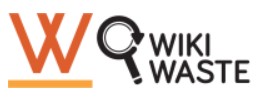The current focus on the banning of export of plastics/mixed plastics seems to focus on three main aspects (and I am including export to OECD and non-OECD countries). Firstly, the desire to bring such processing and value back into the UK rather than exporting it. Secondly, the better control of illegal exports, and thirdly the elimination of exports that result in pollution at the country of destination.
While all of these resonate with me, the tonnage of plastic exported outside the UK represented only 3% of the total tonnage exported from permitted sites in England 2021 (the total being equivalent to 8.4million tonnes). If packaging data is also considered, plastic represented 8% of all exported packaging materials – and by inference at least 60% was classified as ‘end of waste’.
So why place a ban on the export of plastic, which arguably will be very difficult to implement, even on a phased basis as recently suggested by WRAP? It strikes me that bans always have unintended consequences and that maybe there are a number of alternatives to a ban, whether phased-in or otherwise.
The first is that issuing export PRNs has, for many years, encouraged export and rewarded contamination in exported materials. How about removing all export PRNs and issue PRNs solely for tonnage processed and recycled to ‘end of waste’ status in the UK? The biggest issue to this rather radical approach will be the need to recalibrate targets and performance to ensure that the market reflects the impact (putting to one side the issues with obtaining end of waste status at the present time). A toned-down version? Create a different, lower target for export PRNs, in the same way as glass remelt vs glass to aggregates has changed the focus.
The second option seems to be to better define whether plastic, when exported as a recovered material, has indeed reached a high quality specification. Non-binding quality guidelines, in my opinion, will not be good enough to deliver in this option. I can understand Veolia’s position which suggests that no mixed plastics should be exported, but this doesn’t address single stream baled plastics with contamination. The choice? How about only allowing washed flake and processed pellets/nurdles for export? The reality is that by the time that quality is met ‘extruders’ and ‘injection-molders’ will probably want it in the UK.
The final option might be to look at the TFS system. In doing so it could better track exported plastic materials through ports and to end users. This would require contracts with end users and bonds to underpin the cost of the return of material in the event it wasn’t to specification. The problem? It would be expensive and administration-heavy, would still require extensive policing, and ultimately it would require all exported plastics to be treated as waste.
Maybe, then, there are other ways to look at this issue, despite the political convenience and ‘simplicity’ of a ban. Out of the options above, maybe a combination is possible – export PRNs only on flake/nurdles, and any mixed or single streamed plastics moved as a waste under the TFS regime and not eligible for export PRNs?

